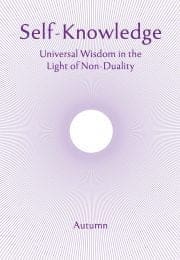Aids to Enlightenment
There are ways and means by which our mind can make progress towards the great goal of enlightenment. Enlightenment, or illumination, is called the great goal because it leads to lasting fulfilment. It is also great because it reveals the greatness hidden in every human heart. In traditional schools of non-duality, this goal is always taught together with the methods that lead to its realisation in our own experience.
Some may ask: ‘Is there not a teacher who can simply confer on us this realisation?’ This is not the case. Whether or not we have an outer teacher, we also have to learn how to be our own teacher. We have to do it. There is a definite way to establish our mind in serenity and satisfaction. And this will reveal our essential oneness with the infinite life that underlies the whole universe. Let us focus on five key principles that are aids on the path to self-knowledge.
- What really matters in life is the state of our own mind and how we guide it. This is because our happiness depends, not on factors outside ourselves, but on our mind. This may seem so obvious that it hardly needs saying. But is it obvious? How do most of us live our lives? Surely most are convinced that fulfilment will come through outer arrangements, achievements and gains. It is only when we find ourselves feeling incomplete and unsatisfied, despite such attainments, that we question the strategy that has so far guided our life.
The non-dual view is that happiness is always associated with a mind at peace. We will learn that peace is something we can develop. Everyone can work towards making their mind serene, calm, relaxed. The inner work is progressive and the inner peace is progressive. A mind at peace is one that is not dominated by instinctive likes and dislikes.
There is a saying: ‘East or West, home is best’. It means the best place is the one you feel at home in. What is the one place that we live in for the whole of our lifetime? It is our mind. The secret of life is to turn our mind into an ideal home. In an ideal home, there is not only comfort. There is beauty, utility, cleanliness, order. There is a good atmosphere not spoiled by conflicts and quarrelling. It is a place we are happy to be at home in.
- Our second key idea is that I, in my ultimate nature, am not the mind. The mind is my instrument. I use the mind much as I use my hands to do practical work and as I use my voice to communicate or to sing. The mind is not self. Mind is not the fundamental, indispensable principle in experience. We can gain insight into our essential separation from the mind when we reflect on the fact that we see the mind. We don’t just think, we know that we are thinking. We know: ‘I am aware of the flow of the thoughts, but I myself do not flow with the thoughts. I am aware that the thoughts are passing, passing, passing. But I myself do not pass. I, as this principle of awareness, never change, and I never cease to be aware of all that the mind experiences.’ All this suggests—some would say proves—that I, as the innermost self, cannot be completely identified with the thoughts.
So what is the significance of all this? It is that we are given a new possibility in our inner life. If we choose, we can adopt a new and free perspective regarding our own mind. This is possible if we grasp the implications of this key idea that the Self is not the mind. The Self is deeper, more inward. The Self is consciousness itself, that never changes and has no limits. This is our true I. The nature of ‘I’ has to be uncovered as pure, infinite, and immortal. For our true being is one with the infinite life that underlies the universe.
Subscribe or enrol for free guest access to read all of this article and Self-Knowledge online.
Already subscribed or enrolled? Log in:


